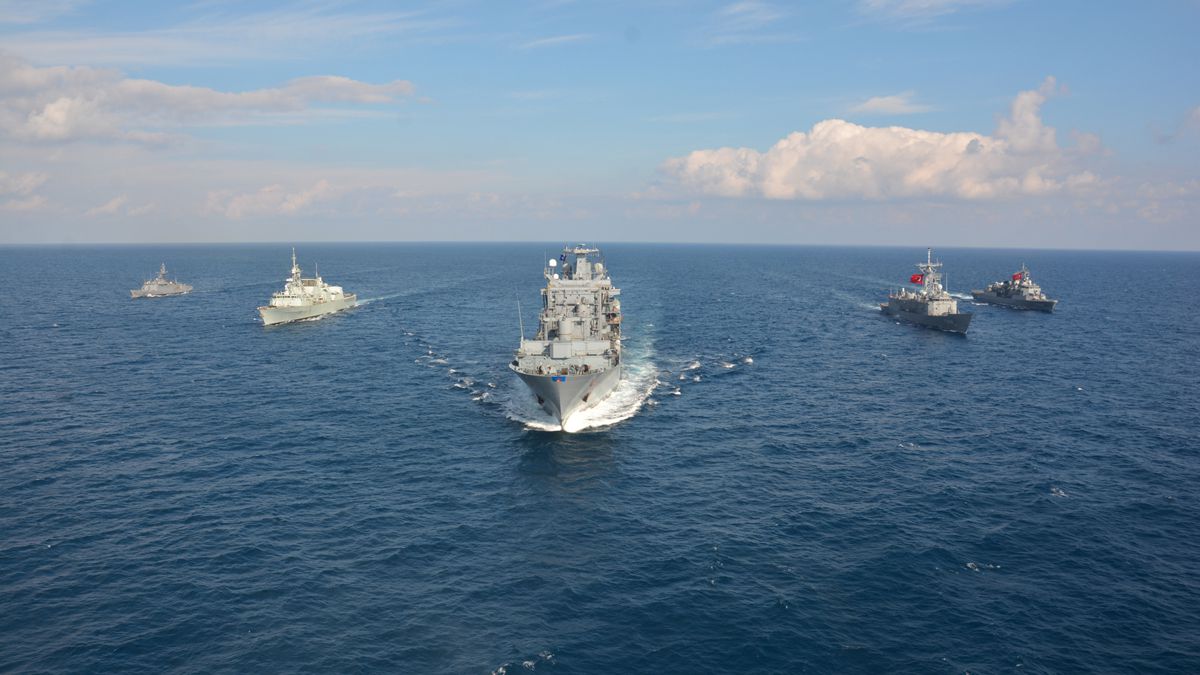NATO Maritime Forces to Target Migrant Smuggling

NATO's defense ministers have announced that they will be sending maritime assets to the Aegean Sea to help with “reconnaissance, monitoring and surveillance of illegal crossings” of migrant vessels.
NATO and U.S. officials described the deployment in terms of law enforcement. “This is not about stopping or pushing back refugee boats . . . NATO will contribute critical information and surveillance to help counter human trafficking and criminal networks,” said NATO Secretary General Jens Stoltenberg.
"There is now a criminal syndicate that is exploiting these poor people and this is an organized smuggling operation," U.S. Secretary of Defense Ash Carter told reporters. "Targeting that is the way that the greatest effect can be had . . . that is the principal intent of this.”
However, Britain's defense minister said that intercepting migrants would be a prominent part of the mission.
“This is the first time we have seen a group tasked with returning migrants. That has not happened before. So that is quite an important development,” said Secretary of State for Defense Michael Fallon.
Unlike the E.U.'s Frontex border and coast guard patrols, NATO maritime assets will return migrants to Turkey even if they are picked up in Greek waters, he added. “They will not be taken back to Greece. The aim of the group is to have them taken back to Turkey. That is the crucial difference.”
Fallon announced Wednesday that the U.K. will commit five vessels to NATO’s standing maritime forces, the first British contribution in six years.
NATO Standing Maritime Group Two will be tasked with the new human trafficking assignment, and its five vessels will deploy promptly. "We are sailing the ships in the appropriate direction," Supreme Allied Commander General Philip Breedlove told a news conference, adding that the mission plan would be refined during the time they were en route. "That's about 24 hours," he said.
The plan, which was requested Monday by Germany and Turkey, is aimed at helping the continent tackle its worst migration crisis since World War Two. More than a million asylum-seekers arrived last year.
